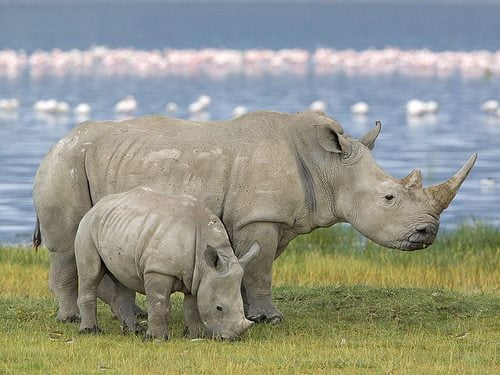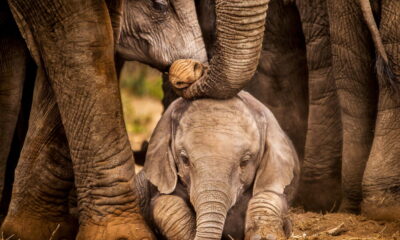

Environment
Rhino poaching: over 1,000 rhinos killed in 2013
Conservation charities have said they fear that the rhino poaching crisis will only get worse in 2014, after more than 1,000 were illegally killed in South Africa alone last year – a record for recent years.
Despite an international ban on the trade, the number of rhinos poached for their horn in the country has been increasing year on year. Figures from the South African environment ministry reveal that a record 1,004 animals were killed last year, representing a significant increase from 668 in 2012 and just 13 in 2007.
The growth is being driven largely by demand in Asian consumer countries, particularly Vietnam. A survey conducted by wildlife trade monitoring network Traffic in Hanoi and Ho Chi Minh City found that the typical rhino horn buyers are upper-middle class citizens, often businessmen, celebrities or government officials.
The illegal product is so popular in these markets that crushed rhino horn is worth more than its weight in gold on the black market. There is even evidence that the proceeds made from rhino horn sales has funded terrorist networks, prompting the US government to draft in its intelligence agencies to tackle the problem.
Despite the efforts of multiple organisations to reduce demand, campaigners say the rate of killings is set to keep rising.
“We fear that 2014 is going to be even worse than 2013 for rhinos,” Cathy Dean, director of Save the Rhino, told Blue & Green Tomorrow.
This is because models mapping the increasing rate of illegal rhino killings in South Africa have suggested that this may be the year that rhino deaths overtake rhino births, meaning the overall numbers of both black and white rhinos will decline.
However, Dean added that there are reasons for optimism. In London, on February 11-12, the Zoological Society of London will hold a two-day conference discussing the illegal wildlife trade.
A heads of state summit will follow this, convened by the prime minister David Cameron with assistance from the Royal Household, through the United for Wildlife initiative.
New legislation is also now on the rhinos’ side, as the European parliament has just passed a resolution cracking down on wildlife trafficking, while the Kenyan government recently passed its long-awaited Wildlife Conservation and Management Act, which includes tougher penalties for poachers.
“Perhaps 2014 is the year when international governments finally recognise that rhino poaching isn’t ‘an animal problem’”, added Dean.
“It’s a matter of organised crime linked with the drugs trade, money laundering and international terrorism.”
Further reading:
Licence to hunt endangered black rhino sold for $350,000 in the US
Rhino poaching: illegal killings on the rise
2013 set to be record year for illegal rhino deaths in South Africa
David Beckham joins forces with Prince William to protest illegal ivory trade


 Environment12 months ago
Environment12 months agoAre Polymer Banknotes: an Eco-Friendly Trend or a Groundswell?

 Features11 months ago
Features11 months agoEco-Friendly Cryptocurrencies: Sustainable Investment Choices

 Features12 months ago
Features12 months agoEco-Friendly Crypto Traders Must Find the Right Exchange

 Energy11 months ago
Energy11 months agoThe Growing Role of Solar Panels in Ireland’s Energy Future




























